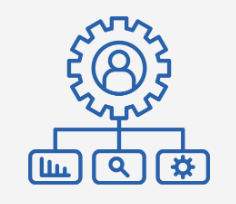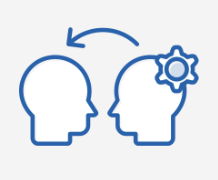The Future Leaders Program
The Future Leaders program is an initiative by the Western Region Public Health Training Center (WRPHTC) to support students conducting applied public health experiences by providing training.
The goal of these projects or internships is to provide students with applied public health experience under the guidance of faculty or field placement preceptors. Projects should serve specific target populations that include underserved communities and project goals that center improving health outcomes in these communities.
The WRPHTC will provide stipends to support students accepted into the Future Leaders program through support from the Health Resources and Services Administration (HRSA). Stipends are subsistence allowances for students to help defray living expenses during their applied public health experience, and are not provided as a condition of employment, or for tuition, fees, health insurance, or other project costs.
Explore examples of impactful public health projects completed by past participants of the Future Leaders Program. These projects showcase innovative solutions and community-driven approaches to achieving health equity.
$3,500 per student
A partial allotment of the funds ($2,000) will be provided at the start of the project and the remainder after deliverables have been submitted.
30 students
Each year 30 students conducting public health projects will be selected to receive stipends for their participation in the Future Leaders program.
Program Components
- Independent applied public health experience (i.e., field placement or faculty-student collaborative project)
- Self-paced, online trainings on communication skills
- 3 virtual exchange sessions with a small cohort of health professions students
- Poster presentation to summarize your public health project
Student Eligibility:
- Students should be undergraduate juniors or seniors, graduate or doctoral students pursuing a degree in a health profession. Students enrolled in community colleges in the US-Affiliated Pacific Islands or Tribal Colleges and Universities are also eligible.
- Students must be enrolled at a school and/or conducting project work in AZ, CA, HI, NV, or the USAPI. Students must be enrolled in their school throughout the course of their project (students that have already graduated from their program will not be considered).
- Students must plan and conduct at least 180 hours of work related to their project, to be completed within one year.
- Students must be U.S. citizens, non-citizen U.S. nationals, from the Pacific Freely Associated States, or foreign nationals with a visa permitting permanent residence in the U.S.. Students on temporary or student visas are not eligible to receive these stipends.
Application Process
| If your project begins | We recommend applying |
|---|---|
| Fall Semester (August - December) | August 1 - September 15 |
| Spring Semester (January - April) | November 15 - January 31 |
| Summer Semester (May - July) | April 15 - June 15 |
Download the Student Guide for More Information
The Student Guide offers comprehensive details, from eligibility criteria and application processes to stipend information and project guidelines. This resource is essential for understanding the Future Leaders Program.
Ready to apply to our Future Leaders program?
Please be sure to read the Student Guide thoroughly before applying to ensure you are eligible and willing to complete all program requirements.
Frequently Asked Questions
What qualifies as “an applied public health experience?”
Students must be conducting either a field placement or faculty-student collaborative project in order to participate in the Future Leaders program. These projects will be a central component to the program and participation in the program. The goal of these projects or internships is to provide students with applied public health experience under the guidance of faculty or field placement preceptors. Projects should serve specific target populations that include underserved communities and project goals that center achieving health equity in these communities.

Field Placement Project
A structured experience that provides students with opportunities to apply their knowledge and skills in a public health setting (such as with a nonprofit or public health agency or organization) under the guidance of an experienced professional.

Faculty-Student Collaborative Project
A research project and/or community intervention led by a faculty advisor where students collaborate with a public health agency to enhance public health services to rural and/or medically underserved communities.
Most MPH internship projects or practicum projects will qualify for our program. For other health professions students, aligning the project objectives and activities to address health disparities at a population level (rather than individual) will help ensure the project meets the acceptance criteria.
What is the criteria for acceptance?
Applications will first be reviewed to confirm that students and their projects meet the eligibility requirements. Priority will be given to students and/or projects that fulfill the following criteria:
Structured opportunities for student to apply public health knowledge and skills: The project should enable the student to apply knowledge and skills learned in their program through structured opportunities and/or experiences.
Contribute to the Mastery of Public Health Competencies: Projects are expected to contribute to strengthening of public health competencies, whether the CEPH Foundational Competencies or the PHF Core Competencies for Public Health Professionals (e.g., assessment & analysis, program planning & policy development).
Community-Focused Projects with Public or Nonprofit Health Organizations Work with Public or Nonprofit Health Organizations: Preference will be given to projects conducted with public or nonprofit health organizations, particularly those working in or with underserved areas and/or populations to address health disparities.
Funding to support student projects is made available by HRSA, and projects must align with HRSA priorities, which are outlined here.


